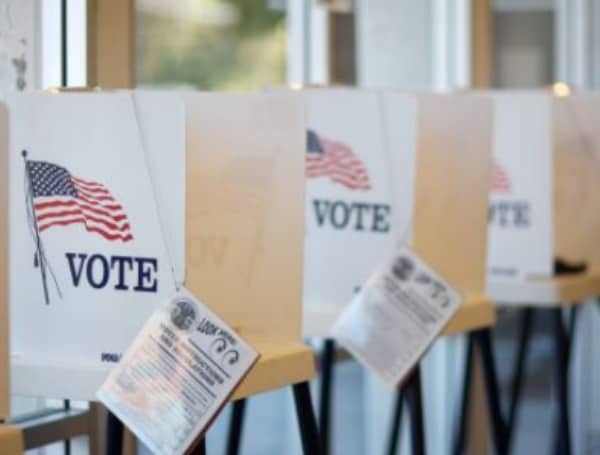by Chris Ingram
HILLSBOROUGH COUNTY, Fla. – With voting in full-swing in Florida, many voters go to the polls having limited if any, pre-voting knowledge about many partisan candidates, but especially judicial retention questions, contested judicial elections, non-partisan school board races, and constitutional amendments.
To help educate voters, here are my recommendations. The constitutional and judicial retention questions are applicable across Florida. The local contested judicial, school board, and other races are specific to Hillsborough County and appear at the end.
State Appellate Court Judges (Vote “NO” on all retentions)
Florida’s appellate court judges are retained under a strange, information-less “vote” of the people by asking, “Should Judge So and So be retained in office?” Unless you are an attorney frequently appearing before said judge’s court, you have no idea if they are a good judge or not. So as a matter of a principled protest vote about how these judges are retained, I always vote no. But alas, most voters vote yes, and good and bad judges are retained to the bench by an ignorant electorate created by the ridiculous system of “retaining” judges.
Constitutional Amendments
There are six constitutional amendments on the ballot this year.
Amendment One requires U.S. citizenship in order to vote in Florida. This is a no-brainer.
Vote “yes” on Amendment One.
Amendment Two raises Florida’s minimum wage to $10 in 2021 and $1.00 per hour every year until 2015; then, annual adjusted for inflation starting in 2027. Free markets, not government should determine wages. What do-gooder liberals don’t recognize when they promote wage increases, is that minimum wage increases are followed by relative increases in goods and services, thus diminishing the value of those new dollars low-wage earners receive. Furthermore, more skilled earners in positions already making $15.00 per hour will find reduced opportunities for better paying jobs.
Vote “no” on Amendment Two.
Amendment Three eliminates party registration requirements to allow for no party affiliated (NPA) voters to cast ballots in Primary Elections for state offices (Governor and cabinet, and state legislature). This amendment is fraught with problems. The first of which is, party primary elections belong to the party, not the people. Allowing this open primary concept will destroy voter opportunity to select from mostly opposing viewpoints in General Elections, thus depriving voters of a general idea of a candidate’s views based on his party identification. Under this system, the two top vote-getters regardless of party, would advance to the General Election. Had this system been in place in 2018, Andrew Gillum would not have been on the ballot in November. The choice would have been between Ron DeSantis and Adam Putnam (both Republicans) because the two of them each received more votes in the primary than Gillum (or any other Democrat). This is an example of the road to hell is paved with good intentions. It would create a disaster, not to mention confusion among unaffiliated voters who still cannot vote in local partisan primaries. No Party Affiliation voters VOLUNTARILY CHOOSE to be un-affiliated, knowing full-well that they cannot vote in primaries by registering as an NPA. If they want to vote in primary elections, they need to pick a party, change their registration, and vote.
Vote “no” on Amendment Three.
Amendment Four expands the amount of time from two years to three years to transfer accrued portability property tax benefits. The initial amendment, passed about ten years ago under Charlie Crist, increased the tax inequity of first-time home buyers, and this expansion would further add to that inequity. Vote “no” on Amendment Four.
Amendment Five would extend ad valorem tax discounts to special constituencies. Cherry-picking which special constituency is deserving of a tax discount is wrong. If taxes are too high for one deserving favored group, why not just lower taxes and spending as opposed to carving out special exemptions? Vote “no” on Amendment Five.
Local Races in Hillsborough County
Less than a decade ago, Hillsborough County government was led by Republicans. The GOP held every constitutional office and a strong majority on the county commission. Today, due to demographic changes and woeful ineptitude by the local Republican Party, the opposite is true. The Democrats’ newfound stranglehold on local offices are not good for taxpayers, or those who value individual responsibility and liberty over the heavy-hand of government.
In all-partisan ballot races, I recommend voters vote for the Republican over the Democrat. Sure, some are tired has-beens looking to extend their careers for another four years. As is the case of Sandy Murman, but her Democrat opponent for county commission is an ultra-liberal and someone with a disdain for voters, making her unfit to serve.
In the case of Hillsborough County Sheriff, I recommend voters vote for Ron McMullen over incumbent Republican Sheriff Chad Chronister. I have met with McMullen, and he is a good man. Chronister will likely win in this three-way race (the Democrat running is so bad, the Hillsborough Democrat Party didn’t even endorse him); still, hopefully, McMullen will have a good showing and run again in four years. For more information about how bad Chad is, click here: Eight Reasons to Think Twice About Voting for Chad Chronister.
Hillsborough School Board
District One, Nadia Combs
District Three, Mitch Thrower
District Five, Henry “Shake” Washington
District Seven, Sally A. Harris
Judicial Races
County Court Judge, Group Seven, Bill Yanger Click Here: Judicial Candidate Makes Misleading Claim About Being a Cop
Misc.
Soil and Water Conservation, Karen Cox Jaroch
Soil and Water Convservation, District Four, Mark Proctor
Chris Ingram is a Tampa communications, political, and media consultant. Follow him on Twitter at @IrreverentView or send him an e-mail to chris@tampafp.com.
